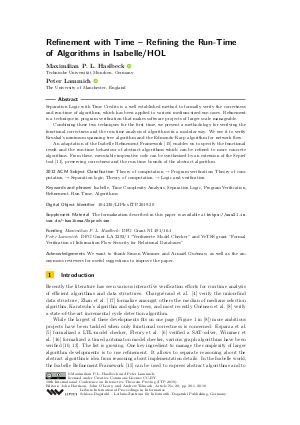LIPIcs.ITP.2019.20.pdf
- Filesize: 0.49 MB
- 18 pages

 Creative Commons Attribution 3.0 Unported license
Creative Commons Attribution 3.0 Unported license














Feedback for Dagstuhl Publishing